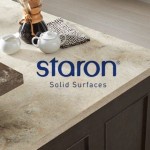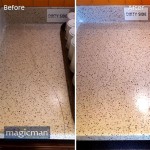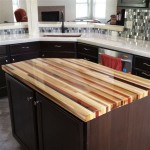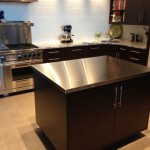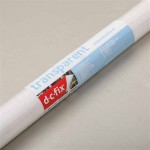What Is The Best Countertop Water Filter?
Access to clean and safe drinking water is paramount for maintaining good health. While municipal water systems are generally treated, concerns about contaminants like chlorine, lead, bacteria, and other impurities persist. A countertop water filter offers a convenient and effective solution to further purify water directly at the point of use. Selecting the "best" countertop water filter, however, requires careful consideration of various factors including filtration capabilities, flow rate, filter lifespan, ease of installation, and overall cost.
Countertop water filters connect directly to an existing kitchen faucet, diverting water through a filtration system before dispensing it into a glass or container. These systems offer several advantages over other filtration methods, such as pitcher filters or whole-house systems. They typically provide a higher flow rate than pitcher filters, allowing for quicker filling of water bottles and pitchers. Compared to whole-house systems, countertop filters offer a more targeted and cost-effective solution, focusing solely on purifying the water intended for drinking and cooking. Understanding the various types of countertop filters and their respective strengths and weaknesses is crucial in determining the best option for individual needs.
Types of Countertop Water Filters
Countertop water filters employ various filtration technologies, each designed to remove specific contaminants. Understanding these technologies is essential for choosing a filter that addresses the specific water quality concerns in a given location.
Activated Carbon Filters: Activated carbon filters are among the most common and effective types of countertop filters. They utilize activated carbon, a form of carbon that has been treated to increase its surface area, allowing it to absorb a wide range of impurities. These filters excel at removing chlorine, chloramine, volatile organic compounds (VOCs), and other chemicals that can affect the taste and odor of water. Activated carbon filters are generally effective at improving the aesthetic qualities of water and removing certain organic contaminants. However, they are not effective at removing dissolved solids or heavy metals like lead.
Ceramic Filters: Ceramic filters utilize a porous ceramic material with extremely small pores to physically filter out bacteria, protozoa, and sediment. These filters are particularly effective at removing pathogenic microorganisms, making them a good choice for areas where water sources may be contaminated with bacteria. Ceramic filters often require periodic cleaning to remove accumulated debris from the filter surface. While they can effectively remove particulate matter and microorganisms, they are generally not as effective as activated carbon filters at removing chemicals or improving the taste and odor of water.
Reverse Osmosis (RO) Filters: Reverse osmosis is a more advanced filtration technology that uses pressure to force water through a semi-permeable membrane. This membrane effectively removes a wide range of contaminants, including dissolved solids, heavy metals (like lead and arsenic), fluoride, bacteria, and viruses. RO systems typically consist of multiple stages of filtration, including a pre-filter to remove sediment and chlorine, the RO membrane itself, and a post-filter to improve the taste of the purified water. RO systems are highly effective at producing pure water, but they also tend to have a lower flow rate and produce wastewater as a byproduct. Countertop RO systems are generally more expensive than other types of countertop filters but offer a higher level of purification.
Combination Filters: Many countertop filters combine multiple filtration technologies to provide comprehensive water purification. For example, a filter may combine activated carbon filtration with a sediment filter or a ceramic filter with activated carbon. These combination filters offer a balance between contaminant removal, flow rate, and cost, making them a popular choice for many households. The specific combination of filtration technologies will determine the types of contaminants that the filter is most effective at removing.
Key Considerations for Selecting a Countertop Water Filter
Choosing the "best" countertop water filter involves evaluating several factors to ensure that the chosen model meets individual needs and addresses specific water quality concerns.
Contaminant Removal Capabilities: The most important factor to consider is the filter's ability to remove specific contaminants present in the water supply. Obtain a water quality report from the local municipality or conduct independent water testing to identify the contaminants of concern. Then, select a filter that is certified to remove those specific contaminants. Certifications from organizations like NSF International and the Water Quality Association (WQA) provide assurance that the filter has been tested and verified to meet performance standards for contaminant reduction. Pay close attention to the specific contaminants that the filter is certified to remove and the percentage reduction achieved for each contaminant.
Flow Rate: Flow rate refers to the speed at which the filter dispenses purified water. A higher flow rate is generally desirable, especially for households that use a lot of filtered water. Consider the household's water consumption habits and choose a filter with a flow rate that can meet those needs. Countertop filters typically have a flow rate that is measured in gallons per minute (GPM). A flow rate of 0.5 GPM may be sufficient for single-person households, while larger households may require a filter with a flow rate of 1 GPM or higher. Keep in mind that RO systems tend to have a lower flow rate compared to other types of countertop filters.
Filter Lifespan and Replacement Cost: The lifespan of a filter cartridge will vary depending on the type of filter and the amount of water that is filtered. Check the manufacturer's specifications for the recommended filter replacement schedule. Consider the cost of replacement filters when evaluating the overall cost of the system. Some filters have a longer lifespan and lower replacement costs, while others require more frequent filter changes. It is also important to consider the availability of replacement filters. Choose a filter model that has readily available and reasonably priced replacement filters to avoid future inconvenience and expenses.
Other Important Factors
Beyond the core considerations of filtration capabilities, flow rate, and filter lifespan, several other factors can influence the overall satisfaction with a countertop water filter.
Ease of Installation: Countertop filters are generally easy to install, typically requiring only a simple connection to the existing kitchen faucet. However, some models may require more complex installation procedures. Look for a filter that comes with clear and concise installation instructions and all the necessary hardware. Some manufacturers also offer video tutorials or online support to assist with the installation process. A simple and straightforward installation process can save time and frustration.
Ease of Use and Maintenance: Consider the ease of use and maintenance of the filter. Look for features such as a simple on/off switch, a clear indication of filter life, and easy access to the filter cartridge for replacement. Some filters may require periodic cleaning or disinfection to maintain optimal performance. Choose a filter that is easy to clean and maintain to ensure that it continues to provide high-quality filtered water.
Size and Design: Countertop filters come in various sizes and designs. Consider the available countertop space and choose a filter that fits comfortably in the kitchen. Some models are more compact than others, while others may have a more stylish or modern design. Choose a filter that complements the kitchen décor and does not take up too much valuable counter space.
Warranty and Customer Support: Check the warranty offered by the manufacturer and the availability of customer support. A longer warranty and responsive customer support can provide peace of mind in case of any issues or problems with the filter. Read reviews from other customers to get an idea of the manufacturer's reputation for quality and customer service.
Ultimately, the "best" countertop water filter is the one that best meets the individual needs and requirements of the user. By carefully considering the factors outlined above and conducting thorough research, individuals can make an informed decision and choose a filter that provides clean, safe, and great-tasting water for years to come.

5 Best Countertop Water Filters Updated For 2025

7 Best Countertop Water Filters And Pitchers Of 2024

Best Countertop Water Filter Systems 2025 Watch This Before You Decide To

Clear2o Cct2000 Countertop Drinking Water Filter System

Best Countertop Water Filters Of 2025 Consumer Reports

The 5 Best Water Filter Pitchers Dispensers Of 2025 Reviews By Wirecutter
Brita Hub Instant Powerful Countertop Water Filtration Device Costco

Reviews For Anchor Water Filters Premium 7 Stage Counter Top Filtration System In Clear Pg 2 The Home

Aquatru Review 6 Data Driven Tests

The 5 Best Water Filter Pitchers Dispensers Of 2025 Reviews By Wirecutter
See Also

